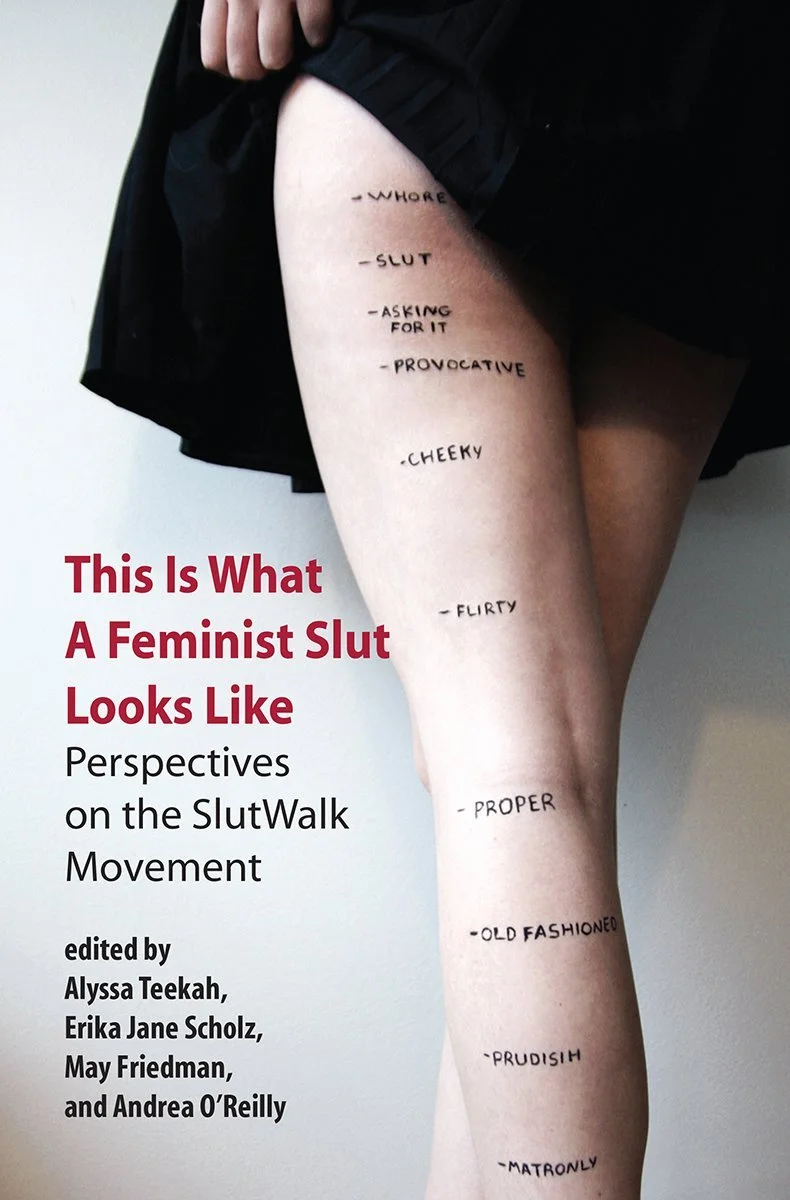October Book Review: This Is What a Feminist Slut Looks Like
Edited by by Alyssa Teekah, Erika Jane Scholz, May Friedman and Andrea O’Reilly
Overview
This Is What a Feminist Slut Looks Like is not your usual take on feminism or “sluts” but instead it offers many perspectives and voices on a really “hot topic”: feminism and the female body. This is what an inclusive collection looks like. Each chapter offered viewpoints from participants, feminists, and writers, some very supportive of the event in question (Toronto’s 2011 Slut Walk) and others completely against both the event and the terminology. As a white, millennial, the concept of word reclaiming is huge, and the term “slut” is endearing to me and those close to me. The idea that this term can only hold negativity due to stereotypes and blatant racism was eye-opening and I admit was not something I considered before picking up this book. Though you can find fault in any argument, it was refreshing to read through the personal anecdotes and musings of attendees and critics alike. Sort of a “chose your own adventure” if you will. One things stands true and that is the idea that feminism is for all of us, and we need to fight in our own individual ways and expressions, whatever those may be. As long as we stay aligned on our mutual goals, we cannot lose.
Authors/Editors
I won’t go too in depth into the editors except to say that two of them were organizers for the original walk. One is a POC who decided to take her leave from the movement due to pressure from other POC who found the walk exclusive and believed it could have been organized and executed much better than it was. The book ends with the story of Andrea O’Reilly who had a life-changing experience with Slut Walk and really ties together the meaning and the reason for such a powerful movement.
Review
Overall I greatly enjoyed this book. Reading the many perspectives helped shape my own on the movement and feminism as a whole. Whether you are for or against, the spark that ignited this movement was heinous and is a huge issue; “Toronto Police Constable Michael Sanguinetti advised “women should avoid dressing like sluts in order to not be victimized”.” Even though he retracted his statement after the fact, the damage was done and women were pissed to say the least. I have all the appreciation for a group of people who put this book together to help offer perspective both for where the organizers came from but also from POC and marginalized folks who felt left out and pointed out that they often are from these raw feminist movements. Whether or not this was true is not for me to say, but it’s a complex battle between those who believe we need to change vernacular and raw, over-sexualized movements and those who demand the freedom to use whatever language and methods they deem suitable.
To conclude…I am team “take back the language and make it your own” as opposed to erasure of certain vernacular, but after reading this book I will definitely move ahead with a bit more caution about others who may be hurt by this idea. I have at the very least stopped to think about how to go about practicing feminism in a more pragmatic way. The truth is we are not free until all of us are free and that means going out of your way to work with others as opposed to forcing your agenda down the throats of others. Isn’t that what we are fighting against after all?
A complicated yet easy to absorb read. Highly recommend.

